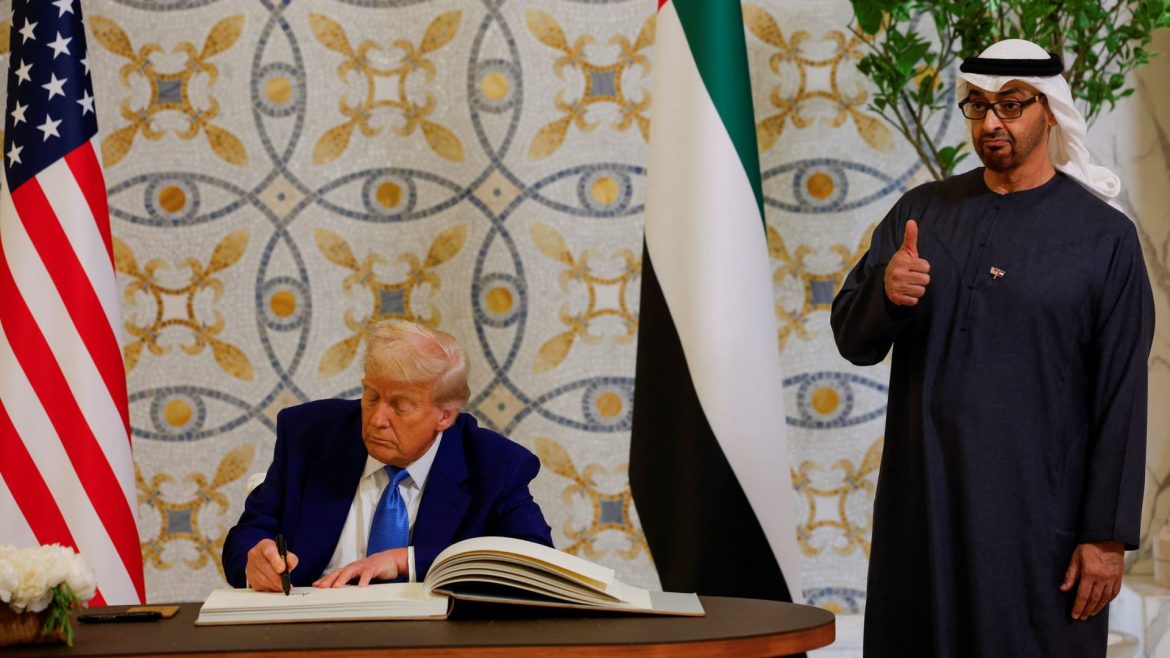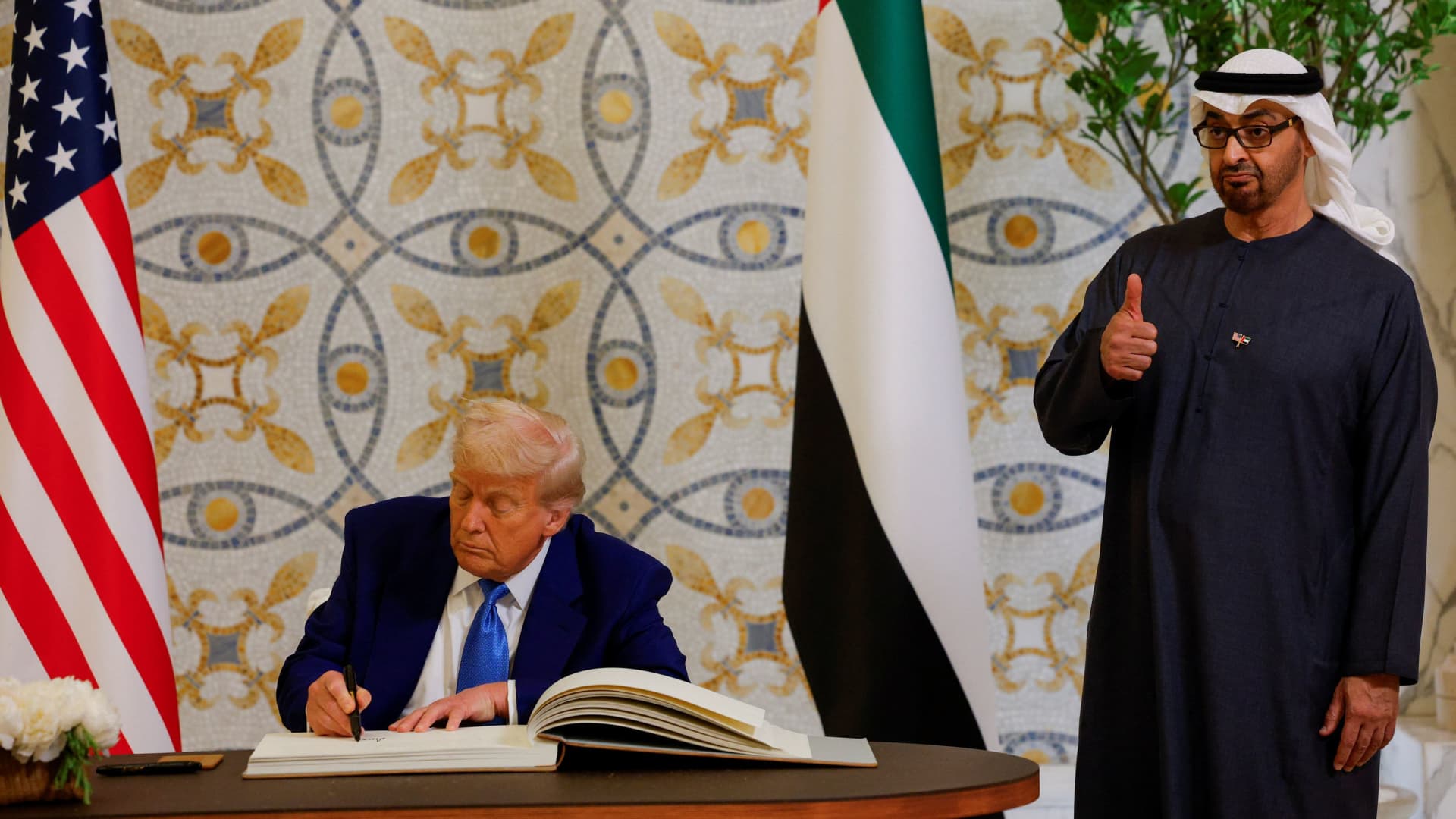The recent developments between the United States and the United Arab Emirates (UAE) signal a significant deepening of economic and technological cooperation, particularly focusing on artificial intelligence (AI) and semiconductor technologies. This evolving partnership hinges on three key pillars: the establishment of a clear pathway for the UAE to acquire advanced American-made AI chips, the UAE’s commitment to an unprecedented multitrillion-dollar investment in the U.S. economy, and the strategic implications of this collaboration amid complex geopolitical considerations.
Establishing a Channel for Advanced AI Chip Acquisition
One of the most notable breakthroughs in this partnership is the agreement that enables Abu Dhabi to purchase some of the most advanced American-made semiconductors. Semiconductors, especially those designed for AI applications, represent critical technological assets underpinning modern computing power and innovation.
Historically, the export of cutting-edge chips has been tightly controlled by the U.S. government, primarily over concerns related to national security and the potential transfer of sensitive technology to rival states. However, the agreement reached between the U.S. and UAE reflects a recalibration of export policies. By carving out a pathway that legally permits the UAE to acquire top-tier AI chips, both nations acknowledge the mutual benefits of collaboration while presumably ensuring safeguards against technology diversion.
This development also underscores the UAE’s aggressive push to emerge as a regional and global hub for AI development. By gaining access to the latest chips, Emirati firms and research institutions can enhance their AI infrastructure, contributing to innovations across sectors—from smart cities and energy management to defense applications.
The $1.4 Trillion UAE Investment: A Game-Changing Economic Commitment
Parallel to the tech transfer agreement is the announcement of a staggering $1.4 trillion investment framework that the UAE pledges to commit in the U.S. economy over the next decade. Such a massive financial infusion is unprecedented and poised to substantially reshape U.S. economic landscapes in several critical sectors.
The investment spans AI infrastructure, semiconductor manufacturing, energy, and American manufacturing broadly. The breadth of this commitment highlights UAE’s intent not only to act as a consumer of American technologies but also as a co-investor and partner in fostering domestic U.S. industrial growth.
Beyond the sheer scale, the investment framework signals deepening bilateral trust and economic interdependence. It suggests a mutual recognition that strategic collaboration in high-tech industries can drive sustainable growth, innovation, and geopolitical stability.
Former U.S. President Donald Trump has emphasized this progress, framing the investment as a major success for U.S.-UAE relations. The $1.4 trillion commitment aligns with ongoing efforts to revitalize American manufacturing capabilities, particularly in precision fields like semiconductor production—a sector which has seen recent global shortages and strategic importance.
Strategic and Geopolitical Considerations
The partnership does not exist in a vacuum but within a complex geopolitical context. Notably, the UAE maintains ongoing economic and military ties with China, which raises concerns regarding the potential indirect flow of advanced semiconductor technology to rival powers. The U.S. government’s approval of chip exports, particularly those intended for a Microsoft-run AI facility in the UAE, was reportedly delayed and carefully scrutinized due to fears about technology transfer.
This backdrop illustrates the delicate balancing act that U.S. policymakers must undertake: enabling strategic alliances that bolster U.S. economic and technological might while mitigating risks associated with dual-use technologies or unintended proliferation.
The UAE, pursuing modernization and technological sovereignty, is positioning itself as a savvy geopolitical actor, leveraging its relationships with major world powers to foster economic development and regional influence.
The Broader Implications for AI and Semiconductor Industries
For the AI and semiconductor industries, this cooperation represents a significant milestone. The policy shift towards enabling advanced chip exports to allied nations could foster a more interconnected ecosystem of innovation and supply chain stability. It could also accelerate the adoption of AI technologies in new markets, opening fresh opportunities for U.S. tech companies and research entities.
Moreover, large-scale foreign investments such as those from the UAE can inject vital capital into R&D, factory construction, and talent development in the semiconductor field, sectors where heavy upfront investments and long timelines have recently been barriers to rapid advancement.
At the same time, this development may prompt other nations to reconsider their own technological policies and alliances, potentially reshaping global technology governance norms.
Conclusion: A Partnership Shaping the Future of Tech and Investment
The emerging U.S.-UAE agreement to facilitate the transfer of advanced AI chips combined with the UAE’s monumental $1.4 trillion investment pledge marks a transformative chapter in bilateral relations. It blends economic ambition with strategic foresight, positioning both countries to mutually benefit from advances in AI, semiconductor manufacturing, and broader technological innovation.
This partnership embodies a forward-thinking model where technology transfer, investment flows, and geopolitical strategy interlock to generate expansive growth and competitive advantage. As these agreements unfold, the impact will reverberate across technology sectors, economic landscapes, and international relations, shaping the contours of 21st-century innovation and diplomacy.





